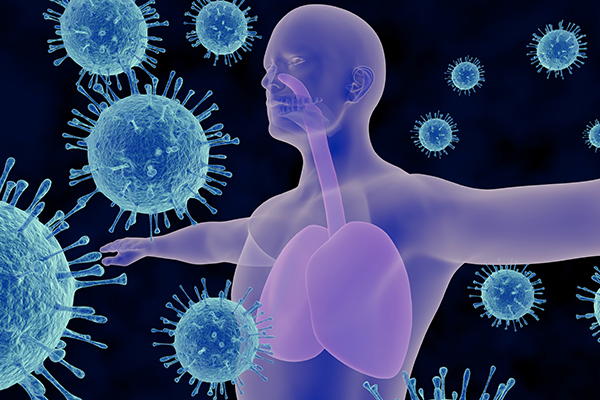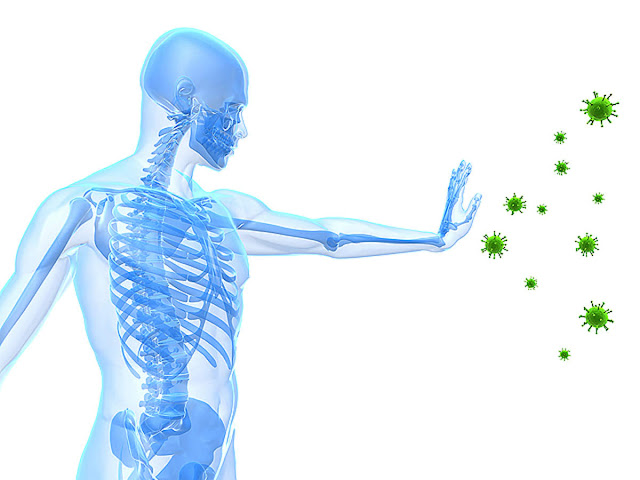Fight Back Against COVID-19: Boost Your Immunity with These Tips on World Asthma Day
People with asthma may have concerns about how COVID-19 will affect them. Since the outbreak of the pandemic, the world has witnessed a significant increase in the number of cases of COVID-19.
While COVID-19 is a respiratory illness, it is not surprising that people with asthma are worried about how it could affect them. In this blog, we will explore how COVID-19 affects people with asthma and what they can do to protect themselves.
“Strong lungs, Strong defense”
First, it is important to understand that COVID-19 is a respiratory illness that affects the lungs. The virus that causes COVID-19, SARS-CoV-2, can cause mild to severe respiratory illness. People with underlying health conditions, such as asthma, may be at a higher risk of severe illness if they contract COVID-19. This is because it can cause inflammation in the lungs, which can make it harder for people with asthma to breathe.
Also, people with asthma may have a weaker immune system, which can make it harder for them to fight off infections like COVID-19. This is because asthma is an immune-mediated disease, meaning that it affects the body's immune system.
It is important to note that not all people with asthma are at the same risk of severe illness from COVID-19. People with mild asthma, who do not have a history of severe asthma attacks, may be at a lower risk of severe illness from COVID-19. However, it is still important for people with asthma to take steps to protect themselves from the virus.
So, what can people with asthma do to protect themselves from COVID-19?
People with asthma need to take extra care and precautions to manage their condition and reduce the risk of complications. One way to support their respiratory health is by incorporating nutraceuticals into their diet. Nutraceuticals are naturally occurring compounds found in foods and supplements that have potential health benefits.
Zeon Lifesciences is a leading manufacturer of nutraceuticals and has a range of products that can help support respiratory health in people with asthma. Here are some ways that people with asthma can use nutraceuticals from Zeon Lifesciences to manage their condition:
Omega-3 Fatty Acids: Omega-3 fatty acids are essential fatty acids that are found in oily fish, nuts, and seeds. Studies have shown that omega-3 fatty acids can help reduce inflammation in the lungs, which can improve lung function and reduce the risk of asthma getting worse.
Probiotics: Probiotics are beneficial bacteria that live in the gut and help support immune system function. It can help reduce the severity of asthma symptoms and improve lung function in people with asthma.
Magnesium: Magnesium is an essential mineral that is important for muscle and nerve function. It helps to relax the muscles in the airways, which can improve lung function.
In addition to incorporating nutraceuticals into their diet, people with asthma should also take other precautions to manage their condition. Here are some tips:
Avoid triggers: People with asthma should avoid exposure to triggers that can worsen their condition, such as smoke, dust, and pet danger.
Take medication as prescribed: They should take their medication as prescribed by their healthcare provider. This may include inhalers, nebulizers, or other medications.
Have an asthma action plan: Should have an asthma action plan that outlines what to do in case of an asthma attack. This should include instructions for taking medication and seeking medical help if necessary.
Get regular check-ups: Get regular check-ups with healthcare provider to monitor the condition and adjust the treatment plan as needed.
In conclusion, COVID-19 can affect people with asthma differently, depending on the severity of their asthma and other factors. However, there are steps that people with asthma can take to protect themselves from COVID-19, such as getting vaccinated, wearing a mask, washing hands regularly, avoiding large gatherings, maintaining social distancing, and managing asthma symptoms.








Comments
Post a Comment